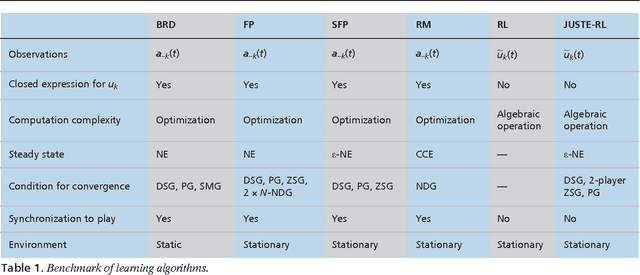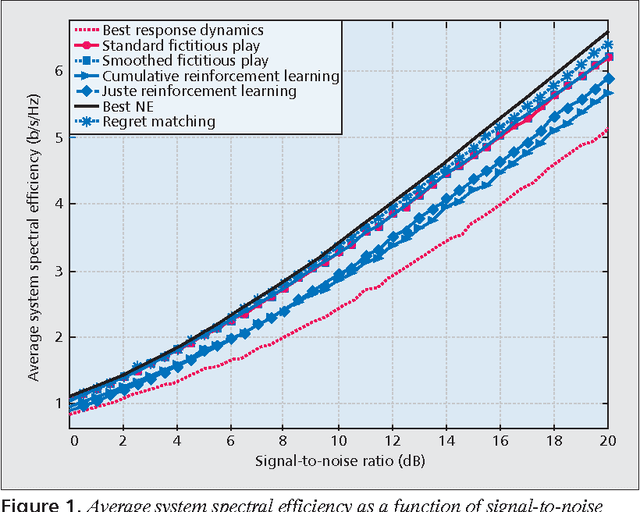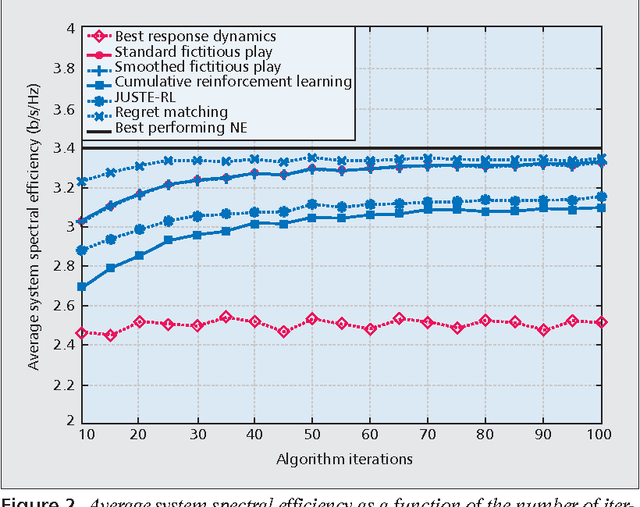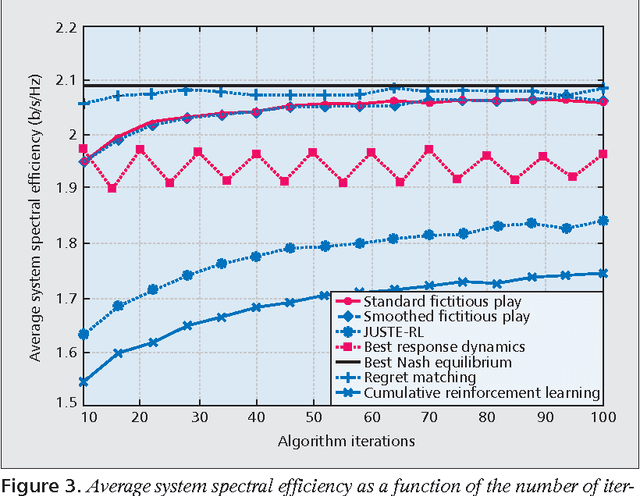Learning Equilibria with Partial Information in Decentralized Wireless Networks
Paper and Code
Jun 14, 2011



In this article, a survey of several important equilibrium concepts for decentralized networks is presented. The term decentralized is used here to refer to scenarios where decisions (e.g., choosing a power allocation policy) are taken autonomously by devices interacting with each other (e.g., through mutual interference). The iterative long-term interaction is characterized by stable points of the wireless network called equilibria. The interest in these equilibria stems from the relevance of network stability and the fact that they can be achieved by letting radio devices to repeatedly interact over time. To achieve these equilibria, several learning techniques, namely, the best response dynamics, fictitious play, smoothed fictitious play, reinforcement learning algorithms, and regret matching, are discussed in terms of information requirements and convergence properties. Most of the notions introduced here, for both equilibria and learning schemes, are illustrated by a simple case study, namely, an interference channel with two transmitter-receiver pairs.
 Add to Chrome
Add to Chrome Add to Firefox
Add to Firefox Add to Edge
Add to Edge